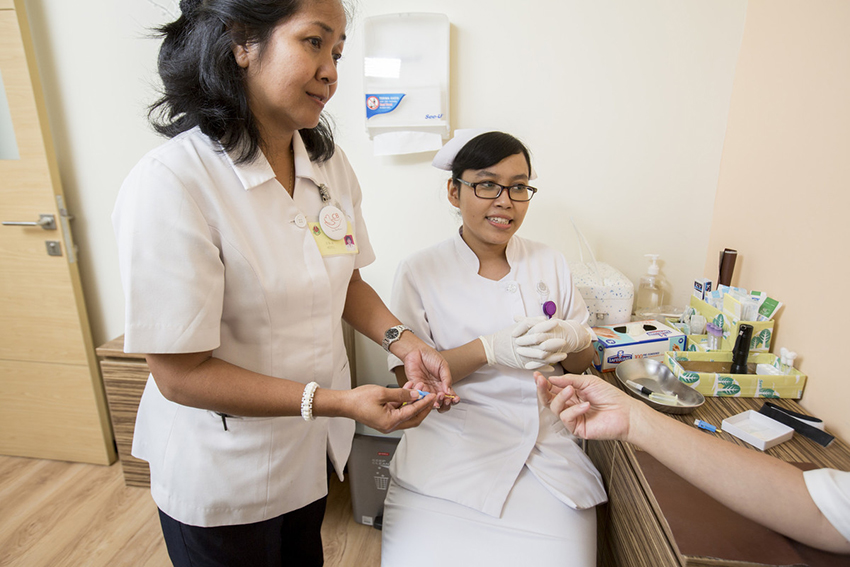
Photo Credit: Jessica Scranton/FHI 360
One of the biggest challenges in international development is anticipating when the next pandemic health threat will strike and how we can minimize its damage. Pandemics can be unpredictable, and it is hard to know when and where to focus attention. Having safe, effective drugs ready to use when they are needed saves lives. Clinical trials, which focus on safety and efficacy, are pivotal to the development of these drugs.
FHI 360’s Global Research Services team works around the world to rapidly set up clinical trials in countries most affected by epidemics. This can be a complex process, and obstacles sometimes include limited facilities and lack of basic resources, such as freezers in which to store vaccines. To explore some of these challenges and the progress made to overcome them, I had a series of conversations with three team members who shared their firsthand experiences in developing clinical trials for malaria and the Ebola and Zika viruses.
Listen to these brief audio segments:
- I spoke with Ghiorghis (George) Belai, Director of Clinical Research in Kenya, about malaria and the drive toward the development of a one-dose cure that could eradicate malaria once and for all.
- Haddie Kiernan, Clinical Project Manager, described the development of a clinical trial for an Ebola vaccine, drawing on her experience in Sierra Leone.
- Claudia Christian, Director of Clinical Operations, and I discussed efforts to prepare for a potential Zika virus outbreak with a new DNA vaccine trial. We looked at a question on many people’s minds: Are we ready for the next pandemic?
I hope that these conversations will leave you more optimistic about the future of pandemic preparedness. Providing rapidly built and effective clinical trials is a strong foundation in the fight against the next health threat.
Learn more about FHI 360’s Global Research Services.
